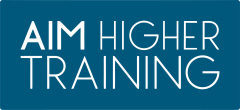The new Employment Rights Bill is currently making its way through parliament at the moment and one if it’s main pillars is the introduction of flexible working from day one. This new law marks one of the most significant shifts in recent times about how organisations and businesses operate. Under the Employment Rights Bill, every employee now has the default right to request flexible working from day one. This change removes the previous 26-week qualifying period.
For employers, this isn’t just a compliance requirement. It’s an opportunity to rethink how teams work, communicate, and thrive. Done well, flexible working can increase productivity, improve staff retention, and foster greater inclusion and accessibility across the workforce.
But making flexible working work in practice takes more than new policies, it requires confident, well-trained managers who understand how to fairly and consistently balance flexibility requests.
From Legal Obligation to Business Advantage
Many organisations see legislative changes as an administrative burden. However, the upcoming changes in flexible working is designed to support both business efficiency and employee wellbeing. When managed strategically, flexibility leads to:
- Higher Productivity: Employees with the autonomy to shape their working patterns often deliver better results and show greater engagement.
- Improved Retention: Flexible employers are more attractive to experienced professionals, particularly those balancing care, health, or accessibility needs.
- Enhanced Inclusion and Accessibility: By offering hybrid, remote, or adjusted-hour roles, employers open the door to a more diverse talent pool, including people with disabilities or long-term health conditions.
Why Flexibility and Inclusion Go Hand in Hand
Flexibility isn’t just about location or hours, it’s about inclusion and accessibility. The Employment Rights Bill strengthens the principle that flexibility should be a right, not a privilege.
For employees with disabilities or access needs, flexible working arrangements can make the difference between thriving at work and dropping out of the workforce entirely.
That’s why a joined-up approach to raising awareness and flexible working policy is essential. Managers must feel confident in applying these rights fairly while keeping operational priorities in balance.
How Disability Impact Assessment (DIA) Training Supports Managers
At Aim Higher Training, our Disability Impact Assessment (DIA) training equips managers and HR professionals with the tools to assess, respond to, and document workplace adjustments effectively.
In the context of changes to flexible working , this means:
- Understanding how to evaluate requests for flexibility linked to accessibility or health.
- Ensuring fair, consistent decision-making across teams.
- Reducing the risk of discrimination or grievance claims.
- Building a genuinely inclusive culture where flexibility works for everyone.
By integrating our training courses into your your organisation, your managers and HR leaders will be able to develop a flexible working policy. You can ensure your approach is both compliant and compassionate, helping teams to work smarter, not just differently.
Building Inclusive, Productive Teams
As businesses adapt to the Employment Rights Bill, flexibility must be viewed as a strategic advantage, not an administrative challenge. Organisations that combine inclusive leadership, accessible policies, and manager training will be best positioned to attract and retain the diverse talent needed for long-term success.
Aim Higher Training offers specialist support for organisations navigating these changes, including DIA training, leadership and management development, and compliance-focused learning designed to turn new legal obligations into lasting opportunities.
Take the Next Step
If your organisation is preparing for the forthcoming changes to flexible working, now is the time to upskill your managers and review your inclusion strategy.
Find out more by downloading this useful Factsheet on Flexible Working
Book a call with Aim Higher Training to discuss how our Disability Impact Assessment training can help your business create a fair, inclusive, and productive flexible working culture.

